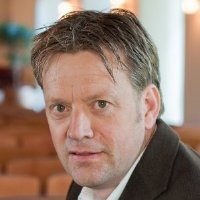2015 marks the year in which the UN Decade of Education for Sustainable Development will have ended and during which the field of environmental education (EE) will be fast approaching its fiftieth anniversary. When considering the state of the Planet today we can only conclude that despite some patchy progress in certain parts of the world, the overall picture remains rather grim as humanity is facing continued loss of biodiversity and ecosystem services, runaway climate change, and increased toxicity of our waters, air, soils and bodies.
When looking at the state of the People we can see that many people across the globe have become wealthier with access to consumer goods, ICT and, increasingly, to education. However, even today there are close to one billion people without access to clean drinking water and without access to fair and meaningful jobs. One billion people are currently malnourished while another one billion is overweight or even obese. Abuse of power, inequality and marginalization remain prevalent. When considering the triple bottom line of People, Planet and Profit over the last 50 years we can only conclude that the ‘P’ of profit has done dramatically better than the other two Ps. 50 years of EE and 10+ years of ESD, not to mention related educational approaches, have had some effect, but too little yet, on enabling a transition from ‘doing the things we do better and more efficiently’ to ‘doing better things’.
One of the things that may have changed is the interest of the private sector in environment and sustainability. Although policy-makers welcome the interest of the corporate world and the private sector in environmental and, particularly, sustainability education, educators are cautious in embracing this interest as they fear that people and planet are being hijacked by narrow commercial interests. In the end it is not the green economy but the green society that matters, a society in which people and planet are served by the economy and not the other way around. The same holds true for education. Education, training and (life) long learning are increasingly being re-oriented to the world-of-work in order to serve short-term economic interests. In the process, education and learning designed with people and planet in mind are at risk of being squeezed out. Fortunately there are growing niches both in education and the world of business where alternative educational and economic models with people and planet in mind are being designed and implemented.
With the state of people and planet under continued pressure and threats and the urgency to respond to global sustainability challenges greater than ever, WEEC 2015 will revisit, reconsider and re-imagine the role of education and learning in finding ways for people - young and old - and planet to develop in greater harmony.
Welcome to Gothenburg to continue the discussion,
Professor Arjen Wals,
Chair International Advisory Panel for WEEC2015

